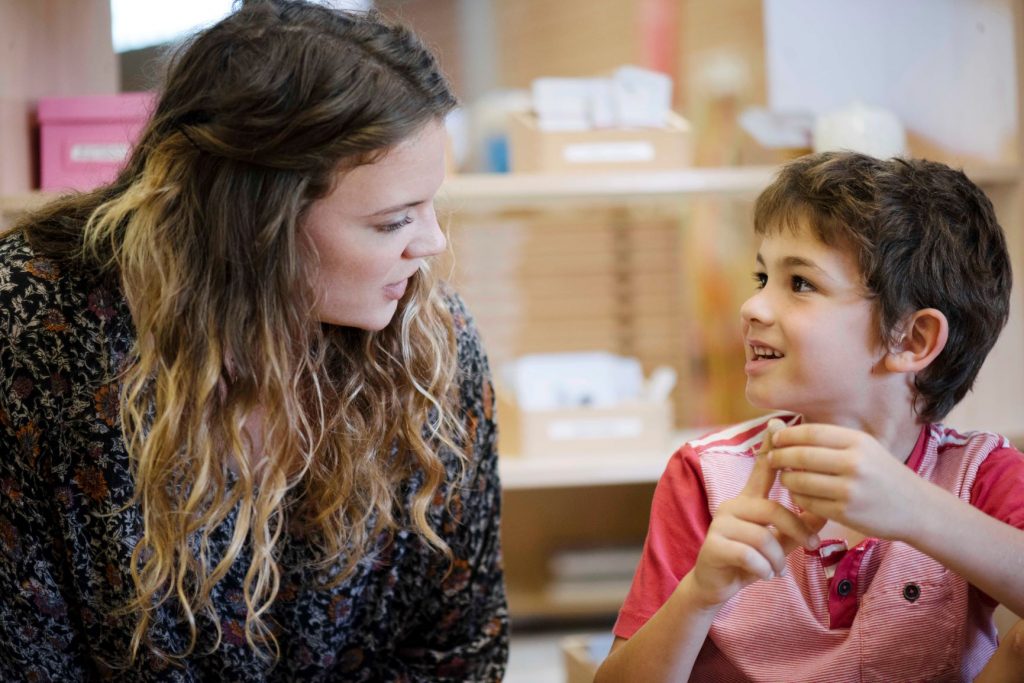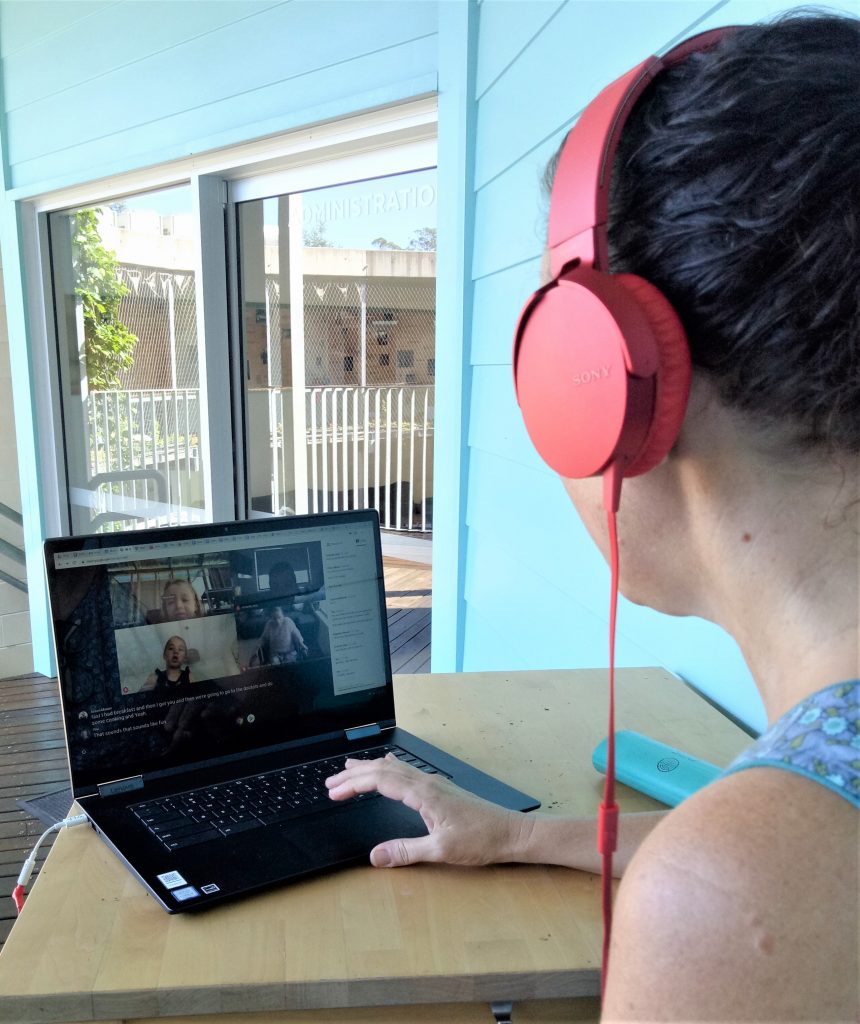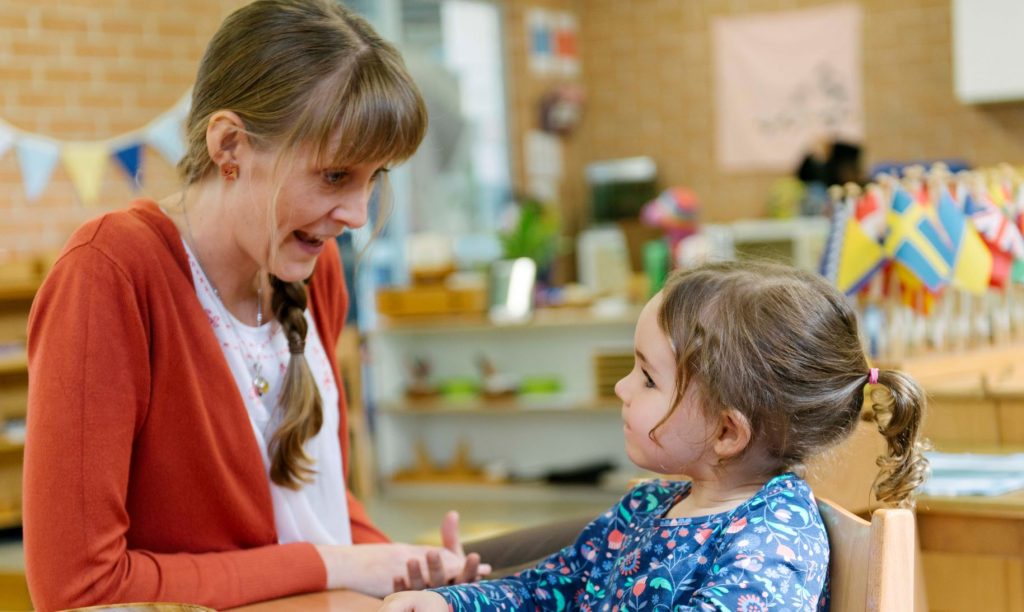It’s a challenging time. For all of us, of course, and for our children in particular. The world as they knew it has changed, perhaps forever, and they’re hearing and experiencing things they’ve never heard of or experienced before.
As MIC children, they already have a broad worldview. From the very first years of school they’ve been introduced to big concepts and big ideas. And from their Junior Primary years they’re introduced to the history of the universe, and all of the key milestones that have brought us from the Big Bang through to today. That is the fundamental cornerstone underlying the Great Stories and our cosmic curriculum. Big, abstract thinking – then drilling down to how it applies to them.
So we don’t shy away from big topics here. Our MMUN students just returned from New York where they debated and challenged themselves (and each other) as they nutted out real-world solutions to some pretty big real-world problems, taken directly from the United Nations agenda. Things like human trafficking, world hunger, racism and xenophobia, the safety of journalists in war-torn countries. It’s big and it’s real – and they’re very capable of understanding the big issues, probably way more capable than most would give them credit for.
But today, with the worldwide pandemic that is the Coronavirus dominating our thoughts and our lives, it’s important that we are mindful of exactly what our children are exposed to. It’s happening and it’s real – and of course they are directly impacted if they’re not at school, their usual activities have been cancelled and they’re staying at home and washing their hands every five minutes, or so it might seem to them. So it’s important that we talk about it – but it’s just as important to consider how we talk about it, and how much.
Fact vs Fiction
As adults it’s relatively easy for us to discern fact from fiction when we are inundated with information. And we certainly understand that a statement from the Chief Health Officer carries far more weight than someone’s opinion on Facebook. Children are still learning this skill, however, so we need to be mindful about what they hear. Take the time to talk to them about what is happening and be sure to stick to the facts. Reading out loud a ridiculous Facebook post may be a light-hearted moment to we adults (and we certainly need those) but may be very confusing to a child. Be conscious of how you talk about the Coronavirus – try not to be flippant or to catastrophise.

Keep it Close to Home
Many of the stories and images on news media and social media relate to the current situation overseas, where the impacts of the pandemic are far more catastrophic than they are here on the Sunshine Coast in Queensland.
While it’s important for children to understand that this pandemic really is worldwide and that many people around the world are affected, it may be useful to talk about how the virus is impacting us locally, to keep some perspective.
At the time of writing (2 April 2020) we currently have 79 Coronavirus cases on the Sunshine Coast and no deaths. Thankfully that is a tiny fraction of the more than 900,000 cases worldwide and the more than 47,000 deaths. It’s also important that children understand that the vast majority of cases are mild (95%) and that the death rate of those who contract the virus is very low (around 3% according to the World Health Organisation).
Have regular, open conversations about the virus and what children are feeling and hearing, but keep to the facts, in particular the facts as they relate to us close to home.
Encourage Questions
Children are naturally inquisitive so it’s important to create opportunities for them to ask questions. Answer questions honestly but don’t feel the need to give answers beyond the initial topic. Children will keep asking further questions if they want to know more – and keep the amount of detail relevant to the child’s age and maturity level. It may be appropriate to have separate conversations with children of different ages.
When answering questions it’s a good opportunity to talk about what the government and community, and the school and your family at home, is doing about the Coronavirus to keep everyone safe.
It’s OK to feel feelings
At MIC we understand that every child is different and that all feelings are legitimate – in fact that goes for we adults as well. It’s totally understandable to feel fearful at times and to worry about the future. As adults this is an opportunity for us to be a good example. If we talk openly about our feelings, our children will too. But it’s also important to be mindful that fear is always in the future – it’s always about what might happen, not what is happening right now. Right now, in this moment, we are safe. The future is unknown, but it has always been unknown. Thankfully here in Australia we have a first-world health system and world-class experts advising our authorities so that we are kept as safe as possible. If we keep our own fears in check, our children will keep that perspective as well, and will be more likely to talk to us about how they are feeling.
Routines and Rituals
Our MIC classrooms thrive on routine and ritual as this creates a safe and predictable space for children to thrive. We encourage our MIC families to maintain your own routines and rituals as much as possible at this time. If you usually have pancakes on Sunday and movie night on Friday, stick to these as much as you can. If you usually get up early and go for a run, keep doing that. Start and end the day as you usually do and try not to let those bedtimes sneak out too much during the holidays. Be sure to still celebrate Easter if that is usually an annual event for your family. There is great comfort in predictability and routine and at this time, it is more important than ever.
Limit Media Exposure
As Montessori families we understand the importance of limiting exposure to television and this is certainly still the case now. The 24/7 news cycle is relentless and this goes for online news as well as the radio. Limit children’s exposure to media coverage – instead sit down with them and explain what is happening and how it affects their world.
Stay Connected
Be sure to stay connected with loved ones and friends during this time. There are many apps available for real-time video connection or even just a phone call. And if our campus is closed in Term 2 (we expect to hear from the government on this over the break) and we are e-learning, keeping our children connected to one another, their Guides and the wider school community will be one of our core objectives. Community and connection is of paramount importance to us at MIC, and if anything we will have an even stronger focus on that once we’re back from holidays in Term 2.

From all of us at MIC, we wish our families a safe and healthy break and look forward to seeing you (albeit maybe virtually!) after the Easter school holidays. Remember we are regularly providing updates on MIC’s position and our response to the pandemic on the password-protected Parent Portal on our website.
